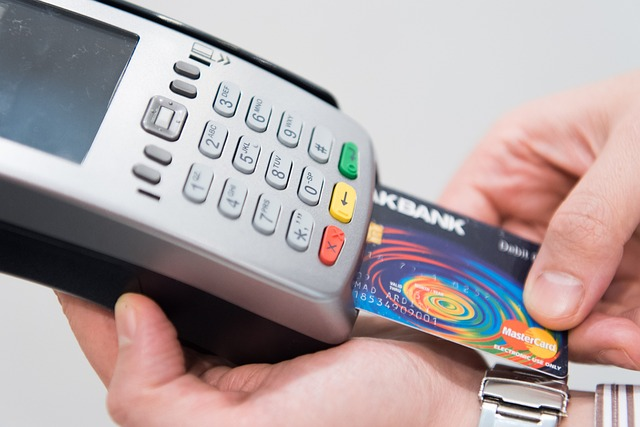What Are Some Ways eCommerce Businesses Can Accept Online Payments?
- Credit Card Payments
- Debit Card Payments
- eCheck / ACH Payments
- Virtual Wallets (such as PayPal)
Credit cards and debit works work in many of the same ways from a merchant’s perspective. The payments are authorized and settled to the merchant’s checking account in the same timeframe. How the transactions are funded differ, credit cards utilize funds from a pre-approved credit line, whereas debit cards come directly from the customer’s checking account. The difference in card types has minimal effect on merchants.
eCheck and ACH are similar to writing a check – funds are withdrawn from a customer’s account and settled to the merchant’s account. eCheck can take additional time to clear between banks, whereas ACH has implemented new technologies that allow for nearly instantaneous funding from one bank to another. This service is still developing and not widely available.
Since the mid-2000s, the emergence of Virtual Wallets has exploded and made the acceptance of credit and debit cards much more effortless. With elementary web integration, along with a fast and straightforward underwriting process, the use of these services has taken off by allowing merchants to create a free online store with minimal financial information.
Keeping with their simple design, the pricing of many of these accounts is flat, thus charging merchants the same fee for every payment card transaction.
If you’re not sure how to get these online payment services set up in your business, you’ve come to the right place. Keep reading to learn more about your online payment options.
What Are Some Factors in Choosing an Online Payment Processor?
One of the first things you’ll need to do when setting up online payments for your business is choose the right payment services provider. This processor may offer a combination of different services, one of which should be a payment gateway for your online store.
Spending time in the beginning to determine the best solution can save you money with lower fees and eliminate the need to redesign the website for use with another payment service.
Many payment processors work with or for larger banks and financial institutions. Many companies can also offer online payment services independently, meaning they can shop for different payment options to provide your business with the best possible solution to accept credit cards.
Payment Gateway
The payment gateway is a virtual terminal used to receive an online payment. Customers’ transaction information is sent to the credit card companies and banks for approval. Once approval is granted, the money will be debited from the customer’s bank account and credited to your merchant account.
Many of the payment gateway services available are separate companies from the payment processor.
The payment gateway should not be confused with the merchant account, however. They are two separate services and may or may not be offered by the same entity.
It is a good question to ask if a payment processor will allow you to “bring your own” gateway to them – this can potentially allow you the ability to negotiate fees using their gateway or another 3rd party service.
Merchant Account
A merchant account is simply a business bank account where the money from online payments is deposited after approval. These hold the funds while transactions are being processed and settled. Once settled, the funds go from your merchant account to your business bank account.
A payment processing company generally manages merchant accounts. The organization that the merchants deal with is a reseller, otherwise known as an ISO or Independent Sales Organization. This company can also be the merchant acquirer or the financial services company that works directly with the Card Associations.
Monthly Fees
Accepting payments online is an integral part of your business but can be costly if you’re not an informed consumer. Each payment processing company will have a different fee structure, which may include a monthly fee.
Be sure to look at each potential provider and write down what those monthly fees are. Checking out the monthly fee structure can give you an idea of the costs associated with credit card payments for this provider.
Some payment processing companies will not call this a monthly account fee, but they might have another term on the statement. It is essential to understand where fees are located and what the amount of the fee is. Payment processing companies can often lower these fees as the minimum fee is usually only a few bucks.
Note – processors may also charge setup fees, so look for that before signing a contract.
Transaction Fees
Along with the monthly cost of payment processing, your processor will charge transaction fees for each credit card payment they process. A Transaction fee is charged by the payment processor to the merchant, usually on a per-transaction basis, for online debit and credit card payments.
Several fees make up a standard transaction fee. They include:
- Interchange fee
- Assessment fee
- Processor markup fee
Many times these fees are hard to find due to the ways the payment processors account for them. Different financial services companies might line item these costs while other companies will wrap these fees with additional fees. Comparing various merchant services providers to see how their transaction fees stack up against one another is a savvy way to choose the right partner.
Small businesses in the eCommerce industry will usually be billed separately by their online payment gateways and merchant account fees. Knowing to ask the right questions will help merchants identify and potentially eliminate junk fees.
Fee Processing Model
There are three basic models for credit card processing fees that you can choose from. It’s essential to learn about each one and which one is offered by your provider. Those models are:
- Flat rate pricing
- Tiered pricing
- Interchange plus pricing
One of the most widely offered payment programs is the flat fee. They are used by many of the online services as a way to sell merchants on their straightforward pricing and easy setup process. While these services can be excellent for new businesses, unfortunately, this pricing structure can be very costly for medium to larger merchants who accept various card types.
Tiered pricing was once the primary way that merchant services companies offered their service to businesses. Offering pricing between 3 to 6 different levels, tiered would usually have a great entry-level, but highly costly downgrades could make this an unfavorable choice for many businesses.
And the best pricing model is…
Today, one of the best pricing models offered to merchants is the interchange plus model that charges merchants a flat fee on top of the exact fees assessed by the credit card companies. This pricing model ensures that merchants are charged the same markup even though every transaction might have different costs.
These fee structures are specific to debit and credit card transactions. As mentioned earlier, they are generally charged on a per-transaction basis, but some may have some surprise hidden fees, so read the fine print! If you’re going to accept credit cards online, you need to understand these models and learn how they differ from one another.
Other Features and Services
Depending on what type of business you have, you may need various services from your processor. Some processors offer only essential services, while others offer bundles that include multiple features. Here are some that you may want to consider when shopping for an online credit card processing service:
PCI Compliance
This is a basic protocol that most payment gateways and processors adhere to, but it’s important enough to talk about! Make sure your service providers are PCI compliant and do not present any security concerns!
Being PCI compliant means that your business is taking the proper measures to secure your customer’s payment information, including working with reputable vendors.
By following all of the card network processing standards for protecting consumer data, your chances of a security breach decline, and payment processors will be happy to work with you.
Recurring Billing
If your business offers a subscription plan to accept online payments, you’ll need to ask potential processors about this functionality. Many banks and financial institutions are not interested in providing a service that can be considered high risk or run the risk of high chargebacks.
Choosing a payment services provider that offers recurring billing will allow you to accommodate your customers’ subscription or recurring payments.
Payment Types
As mentioned earlier, you need to consider which types of online payments you want to accept. As technology has evolved, how people make payments have also changed.
With more options for accepting money, whether online or in-person, it is essential to offer many of the payment options your customers expect.
If you can accept payments from more people, you can make more money! Providing a variety of payment options will make your business more enticing to a wider variety of people.
Some of the most popular methods of accepting payments online include:
- Mobile Payments
- Debit and Credit Card Payments
- Apple Pay and Android Pay
- PayPal Credit
- ACH Processing
- Cryptocurrency
Customer Service and Support
This may seem like a small thing, but it’s something you need to consider. If you’re ready to start accepting payments online, you will likely have tons of questions. Choosing the right service provider with plenty of support is a smart move.
Whether you have questions about your payment gateway, merchant account, virtual terminal, or something else, they should be able to help.
What Are Some Best Practices for Accepting Payments Online?
After choosing the best payment processor for your online payments, it’s time to manage your daily operations! If you accept credit card payments online, there are a few things you need to do every day.
Settle your transactions every day!
This may seem very simple, but it’s essential to understand that it will save you some cash. It can be a pain if you have a high transaction volume, but most payment processors charge additional fees for charges settled after 24 hours. Failure to settle transactions in a reasonable time period can result in higher fees being assessed on those transactions.
Thankfully, most credit card terminals and merchant accounts can be set to automatically “batch” or settle transactions at the end of the business day.
Use address verification or another form of ID.
Speaking of fraud prevention tools, address verification is a great way to protect your customers. If you accept credit card payments online, you need to have a security feature like this in place to verify the purchaser’s identity.
When shipping packages, ensure that the recipient address is the same as the billing address. If not, verify where the package is going and that the recipient is or is known by the customer.
Audit the entire process.
Make sure you know what’s going on with your payment gateway. If you have fraud prevention tools set up, be sure to check them daily for potential red flags.
Another trick is to require a captcha on the checkout. Captcha’s makes it harder for would-be thieves to try multiple cards and lockout IP addresses that repeatedly fail to send transactions.
Final Thoughts
When you accept online payments, you take on the responsibility of protecting your customers while growing your business. There are plenty of options available for merchants to accept credit card payments online, and each one is unique.
Understanding the different options available and how each works will help small businesses ask better questions when shopping and give them more information for negotiating.
Merchants also have alternative payment options, such as ACH processing or cryptocurrency. Your best bet is to figure out what your business needs first and then start interviewing processors until you find the right one to help you accept payments online. Finding an online payment processing company that can offer multiple different solutions might be most beneficial.











